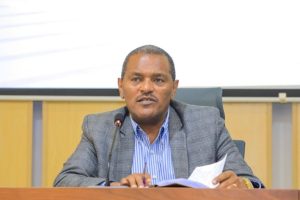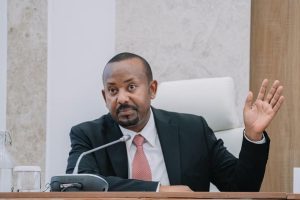
For many years the number of Ethiopia’s ethnic groups was roughly estimated to be more than 80. When the FDRE constitution was ratified in 1995, it recognized 67 of them as Nations, Nationalities and Peoples. Later as per its provision, nine more ethnic groups were given recognition.
Gebru Gebreselasie, Public Relation and Communication Director at FDRE House of Federation, says according to Ethiopian Article 31 of FDRE Constitution people who share broader character, common language, common social interaction, uniformity of psychology and the like are the main principles to grant recognition.
The Constitution also stated that the recognition decision can be made by the immediate governmental administration to minimize the possible lengthy process, but sometimes the question fails to be solved at the lowest administrative level and is forwarded to the House of Federation.
Still quest to be recognized as distinct ethnic groups is inherent. Usually people request self-administration and identification with the intention of developing their culture, language and the like. As Ethiopia is the land of multinational country, it is considered that developing cultures, languages, history, and equal participation of political decision making in country’s matter.
Contrary to this some people argue that such questions of self-administration are sometimes misused as a means of pursuing hidden political agenda. So, the question should be responded based on constitution only.
Particularly, some people said that giving recognition is the sources of conflict, displacement, and impedes of unity, on the other side, the action is crucial to helping each other’s and obliging to rising decision making.
Gebru does not agree with the claims that giving recognition to nations and nationalities is not a source of conflict and disintegration. It is rather related to equitable use of resources and ensures country’s overall development. In this regard consolidating national unity needs to national consensus while understanding constitution is better to raise such rights in line with the Constitution.
He believes that providing infrastructure, utilizing best handling system of nations’, and ensures citizens right that would be working in any parts of the country and asset of capital without any anxiety has playing vital role to strengthen social interaction and building strong nation.
Applied Linguistic Lecturer at Wolkite University, Tiglu Geza (PhD) on his part said that cultural pluralism is common throughout the world. Ethiopia is also diversified country with a variety of cultures, languages, attitudes and the like that have been living tolerance in a long history. In this regard, Yobogod is a good example in SNNP where different speakers from Wolaita, Gamo Goffa, Dawaro, and Konta are communicating and respecting each other’s with the existence of small difference while they have obtained recognition.
According to Tiglu, people live in tolerance despite a wide gap of difference through a long ingrained culture of mutual respect. In contrast, people are impeded to live in tolerance with existence of little difference. To solve the problem and continuing through consistent manner, it needs to improve the handling system of nations, nationalities and peoples throughout the country.
“Although Ethiopia’s Constitution helps to address nations and peoples request, it has not clear regulation about the relationship of words, voice, and accent of the given languages that how to entertained. Responding to the questions takes time which is one of the challenges facing the House of Federation’’
Tiglu believes that doing research is better to identify and group the languages starting from voice to language relation, conserving culture, give recognition through legal process and the like is playing indispensable role so as to create strong nation, fair distribution of resources, social interaction, ancestral culture development, and standing for common agenda.
The Ethiopian Herald December21, 2019
BY MESERET BEHAILU




